The search landscape is undergoing its most significant transformation since Google's inception. AI-powered search experiences like Google's AI Overviews, ChatGPT, Perplexity, and Gemini are fundamentally changing how people discover information online—and how brands need to optimize their digital presence.
In this new frontier, traditional SEO tactics alone won't secure your place in AI-driven search results. Modern businesses need to master both Generative Engine Optimization (GEO) and AI Optimization (AIO) to ensure their content is discovered, cited, and recommended by AI tools.
At Roketto, we're seeing firsthand how businesses that adapt to this evolution are capturing high-intent traffic while their competitors struggle with declining visibility. Recent data shows that 39% of Google searches now include AI Overviews, up from just 25% in late 2024—and that number continues to climb.
This comprehensive guide will walk you through actionable strategies to optimize your digital presence for AI-driven search, helping your SaaS, eCommerce, or B2B business stay ahead of this rapidly evolving landscape.
GEO vs AIO: Understanding the AI Search Landscape in 2026

Traditional SEO vs. GEO/AIO: What's Changed?
Traditional SEO has always focused on optimizing for visibility in search engine results pages (SERPs). The goal was simple: rank higher, get more clicks, drive more traffic.
But AI-powered search is different. When users engage with ChatGPT, Perplexity, or Google's AI Overviews, they often receive direct answers without ever clicking through to a website. This fundamental shift is creating what industry experts call "zero-click searches"—queries that get answered directly in the search interface.
Key differences between traditional SEO and GEO/AIO:
|
Traditional SEO |
Generative Engine Optimization (GEO) / AI Optimization (AIO) |
|
Focuses on ranking in SERPs |
Focuses on being cited as a source in AI-generated answers |
|
Success measured by traffic, clicks |
Success measured by brand mentions, citations, conversions |
|
Optimizes for keyword matching |
Optimizes for contextual relevance and authority |
|
Content structured for human readers |
Content structured for both humans and AI comprehension |
The Impact on Traffic and Conversion
You might be wondering: "If users aren't clicking through to my site, how does this benefit my business?"
While direct traffic from some query types is declining, AI search is creating new opportunities:
- Higher quality traffic: Users who do click through after seeing AI-generated results often have higher intent and conversion rates.
- Brand awareness at scale: Being cited as a source in AI-generated answers builds brand authority and recognition.
- New conversion paths: AI tools are beginning to implement direct conversion options, allowing users to sign up, make purchases, or book demos directly through the AI interface.
The key isn't fighting this change—it's adapting your strategy to capitalize on it.
GEO vs AIO: 7 Powerful Strategies to Optimize for AI Search Results

1. Create E-E-A-T-Focused Content That AI Engines Trust
Google's E-E-A-T guidelines (Experience, Expertise, Authoritativeness, Trustworthiness) have become even more crucial in the age of AI search. AI algorithms heavily favour content that demonstrates genuine expertise and authority.
Actionable tips:
- Showcase author credentials: Include detailed author bios with relevant qualifications and experience.
- Share first-hand experiences: Incorporate personal stories, case studies, and original research that demonstrate your hands-on expertise.
- Back claims with data: Cite reputable sources, include statistics, and provide evidence for your assertions.
- Add visual proof: Include original images, videos, or screenshots that validate your expertise or experience.
2. Structure Content for Maximum AI Comprehension
AI systems rely on well-structured content to extract information efficiently. Making your content easily "digestible" for AI crawlers increases the likelihood it will be featured in AI-generated answers.
Actionable tips:
- Use clear, descriptive headings: Structure your content with H2s and H3s that clearly outline the topic hierarchy.
- Add summary sections: Include concise summaries at the beginning of long-form content to provide AI with easily extractable key points.
- Implement FAQ sections: Create dedicated FAQ blocks that directly answer common questions related to your topic.
- Create tables for comparisons: Present comparative information in a table format for easier AI comprehension.
3. Implement Schema Markup for Enhanced AI Understanding
Schema markup helps AI systems better understand the context and purpose of your content. This structured data can significantly improve how AI engines interpret and use your information.
Actionable tips:
- Add FAQ schema: Implement FAQ schema for question-and-answer content to increase chances of being featured in AI-generated responses.
- Use HowTo schema: For instructional content, implement HowTo schema to clearly define steps and processes.
- Implement Product schema: For eCommerce sites, ensure all products have complete schema markup including price, availability, and reviews.
- Add Organization schema: Implement Organization schema to help AI systems better understand your brand identity.
Here's a simplified example of FAQ schema implementation:
<script type="application/ld+json">
{
"@context": "https://schema.org",
"@type": "FAQPage",
"mainEntity": [{
"@type": "Question",
"name": "What is Generative Engine Optimization?",
"acceptedAnswer": {
"@type": "Answer",
"text": "Generative Engine Optimization (GEO) is the practice of optimizing content to be accurately understood, used, and prioritized by AI-driven search engines and assistants like ChatGPT, Google's AI Overviews, and Perplexity."
}
}]
}
</script>
4. Focus on Natural Language and Conversational Queries
AI search tools are designed to understand and respond to natural language queries. Optimizing for conversational search patterns can significantly improve your visibility in AI-generated results.
Actionable tips:
- Target question-based keywords: Incorporate common questions your audience asks about your products, services, or industry.
- Create content that directly answers "what," "how," "why," and "when" queries: Structure content to provide clear, concise answers to these question types.
- Use conversational language: Write in a natural, conversational tone that matches how people actually speak and ask questions.
- Analyze voice search patterns: Use tools like AnswerThePublic to identify common voice search queries related to your niche.
5. Optimize Technical SEO for Enhanced AI Crawling
Technical SEO remains crucial for AI optimization, as bots need to efficiently crawl and index your content before it can be included in AI-generated answers.
Actionable tips:
- Improve page speed: Ensure fast loading times, as AI crawlers prioritize quickly accessible content.
- Implement mobile optimization: With mobile searches dominating, ensure your site is fully responsive and mobile-friendly.
- Use HTTPS protocol: Secure your site with HTTPS to build trust signals for both users and AI systems.
- Create a clear site structure: Develop a logical site architecture that helps AI systems understand the relationships between your content.
- Check for crawler access: Review your robots.txt file to ensure it's not inadvertently blocking new AI crawlers from accessing your site.
6. Build Authoritative Backlinks and Brand Mentions
Links remain a powerful ranking factor, but in the AI era, unlinked brand mentions are gaining importance as well. Both help establish your content as a credible source worthy of citation in AI-generated answers.
Actionable tips:
- Focus on quality over quantity: Seek backlinks from authoritative, relevant sites in your industry.
- Monitor brand mentions: Track when your brand is mentioned across the web, even without a direct link.
- Engage in digital PR: Secure coverage in reputable publications to strengthen your brand's authority signals.
- Create linkable assets: Develop original research, studies, or tools that naturally attract links and mentions.
7. Optimize for Featured Snippets and AI Overviews
Featured snippets often serve as a primary source for AI-generated answers. Optimizing for these "position zero" results can significantly increase your chances of being cited by AI tools.
Actionable tips:
- Identify snippet opportunities: Use tools like Ahrefs or SEMrush to identify keywords that currently trigger featured snippets.
- Structure content for snippets: Format your content in ways that are easily extractable for featured snippets (paragraphs, lists, tables).
- Provide concise definitions: When defining concepts, use clear, concise language that can be easily extracted.
- Monitor and refine: Regularly check which of your content is appearing in featured snippets and AI Overviews, and refine your approach based on these insights.
GEO vs AIO: Measuring Success in the AI Search Era

As the search landscape evolves, so too must your measurement strategies. Traditional metrics like organic traffic and keyword rankings remain important, but new metrics are emerging to track success in AI-driven search.
Key AI Search Metrics to Track
- AI Overview inclusion rate: The percentage of your target keywords that trigger AI Overviews featuring your content.
- Brand citation frequency: How often your brand is mentioned in AI-generated answers across different platforms.
- Post-AI traffic quality: While overall traffic may decrease, monitor conversion rates of visitors who arrive after engaging with AI results.
- Voice search appearances: For businesses targeting voice search, track how often your content is surfaced in voice search results.
Case Study: How We Helped a SaaS Client Dominate AI Search Results
One of our SaaS clients was experiencing declining traffic despite maintaining strong traditional SEO rankings. The culprit? AI Overviews were appearing for many of their target keywords, and competitors were being cited more frequently.
Our approach:
- Content restructuring: We reorganized their key pages to include clear summaries, FAQs, and structured data.
- Authority building: We launched a targeted digital PR campaign to increase authoritative mentions across the web.
- Technical optimization: We improved site speed and implemented comprehensive schema markup.
Results after 6 months:
- 42% increase in brand mentions within AI-generated answers
- 18% increase in conversions despite a slight decrease in overall traffic
- 215% increase in featured snippet appearances
- Significant growth in branded search volume as awareness increased
The Future of AI Search: What's Next?

The AI search landscape continues to evolve rapidly. Here are key trends to watch:
- Multimodal AI search: Future AI tools will increasingly combine text, image, and video understanding to deliver more comprehensive results.
- Personalized AI responses: AI search will become more personalized, tailoring answers based on user preferences and history.
- Direct conversion options: More AI tools will implement direct conversion paths within their interfaces, allowing users to take action without visiting websites.
- Voice search dominance: As voice interfaces improve, optimizing for voice-based AI search will become increasingly important.
By staying ahead of these trends and implementing the strategies outlined in this guide, your business can thrive in the rapidly evolving world of AI-driven search.
GEO vs AIO: How Roketto Can Help Your Business Master AI Search
At Roketto, we've been at the forefront of the AI search revolution, helping SaaS, eCommerce, and B2B businesses adapt their digital strategies to this new paradigm. Our comprehensive approach to GEO and AIO combines cutting-edge technical knowledge with proven content strategies.
Our services include:
- AI-optimized content development: Creating content specifically designed to rank in AI search results.
- Technical GEO/AIO implementation: Implementing schema markup, optimizing site structure, and enhancing crawler accessibility.
- Authority building campaigns: Digital PR and backlink acquisition focused on increasing your brand's authority signals.
- AI search performance tracking: Custom reporting on AI-specific metrics to measure your success.
Ready to ensure your brand thrives in the age of AI search? Contact us today for a free consultation on how we can help you implement an effective GEO/AIO strategy tailored to your specific business goals.
Conclusion: Embracing the AI Search Revolution

The rise of AI in search isn't just another algorithm update—it's a fundamental shift in how people find and consume information online. Businesses that recognize this change and adapt their strategies accordingly will find tremendous opportunities to build authority, reach new audiences, and drive meaningful conversions.
By implementing the GEO and AIO strategies outlined in this guide, you'll position your brand to not just survive but thrive in this new era of search. The future belongs to those who embrace change, and at Roketto, we're here to help you lead the way.
Ready to dominate AI search results? Contact Roketto today for a personalized strategy session.

Ulf Lonegren
Ulf Lonegren is CEO and Co-Founder of Roketto, where he has led digital marketing strategy for over 15 years. With extensive experience in both traditional SEO and emerging AI search optimization, Ulf has guided hundreds of SaaS and ecommerce companies through major search algorithm updates and platform shifts. His expertise spans from the early days of Google's algorithm changes through the current AI revolution, giving him unique insight into what actually drives sustainable search visibility. Ulf's approach focuses on fundamental optimization principles that adapt to new technologies rather than chasing trending acronyms, a philosophy that has helped Roketto's clients achieve measurable growth across multiple search paradigm shifts.











2.png)
2.png)









